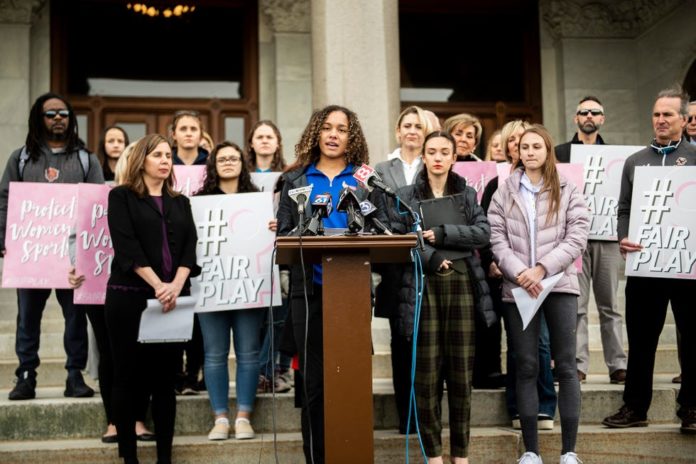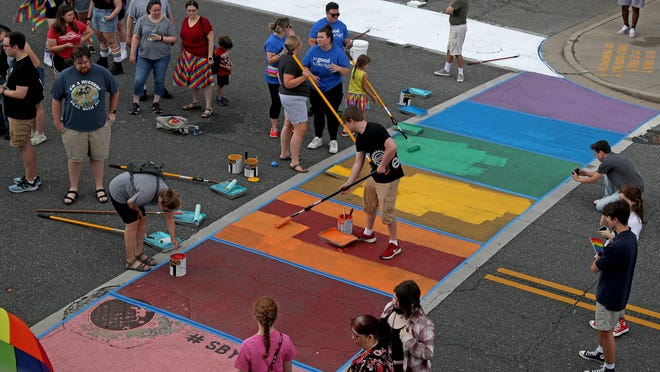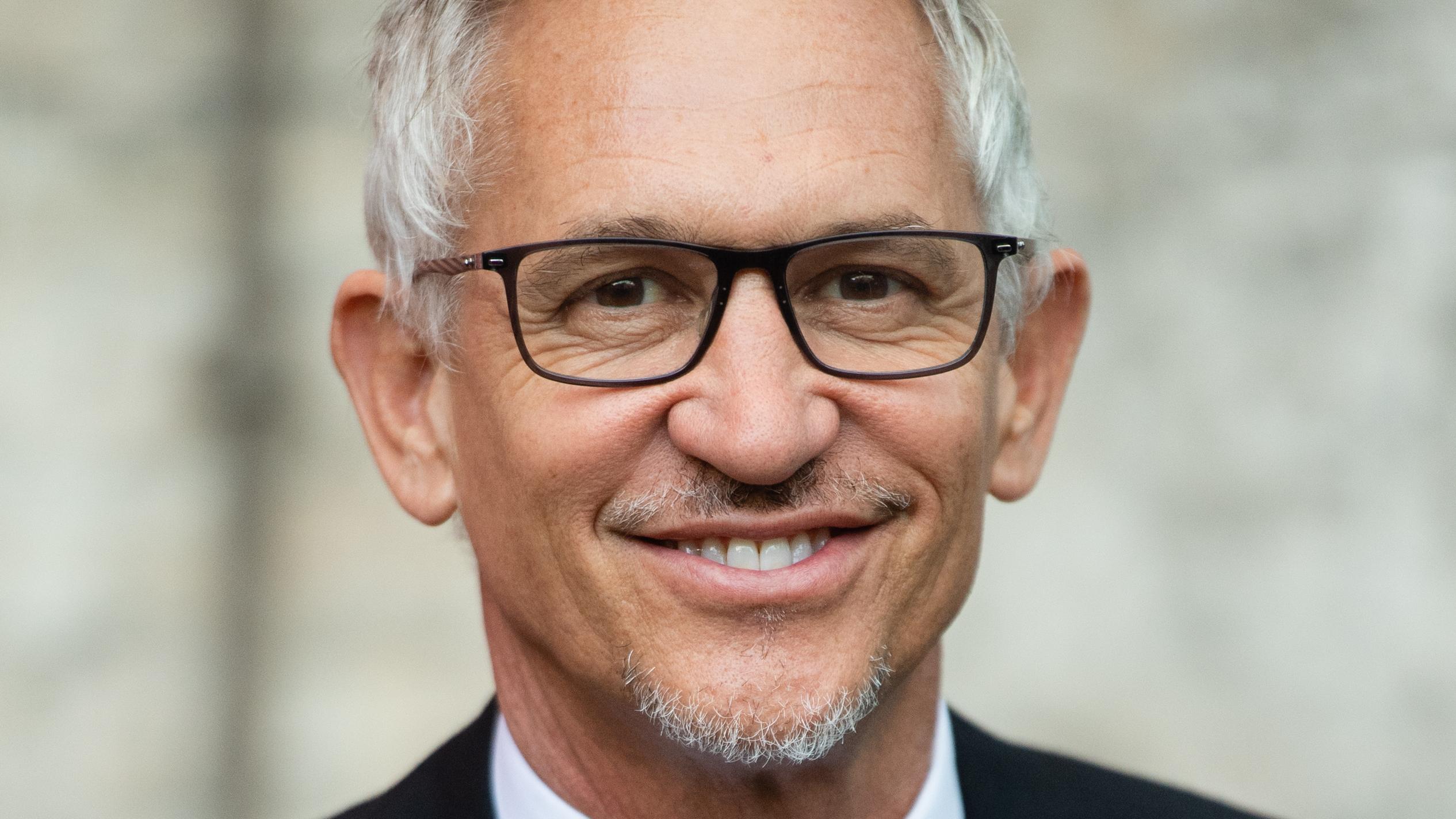Since Joe Biden became the Democratic presidential front-runner last summer, false claims about the LGBTQ community have surged on social media.
Thousands of people shared posts that erroneously link LGBTQ people to pedophilia. Claims about legislation such as the Equality Act distorted the facts on gender identity and sexual orientation.
Experts and historians said those false claims – amplified across social media platforms in spite of the companies’ policies – tap into age-old myths to push back against gains for the LGBTQ rights movement.
“I think that we’ve definitely seen increased anti-LGBTQ, particularly anti-trans, disinformation as a political tactic,” said Brennan Suen, director of the LGBTQ program at Media Matters for America, a liberal nonprofit group that tracks misinformation from right-leaning sources.
“Disinformation” is any false information that’s deliberately created and shared to cause harm, the motivations ranging from financial to psychological, according to First Draft, a nonprofit group that monitors online content. “Misinformation,” on the other hand, is false information that is not intended to cause harm. Whatever the intent behind the barrage of claims about the LGBTQ community, many of them are outright false or misleading.
Some advocates said the influx of misinformation has moved offline.
More:How Joe Biden became the most LGBTQ-friendly president in US history
Since January, when President Biden signed executive orders allowing transgender Americans to serve in the military and preventing discrimination based on sexual orientation and gender identity, state lawmakers have introduced dozens of bills aimed at preventing transgender students from participating on sports teams. Governors in several states signed those bills into law, requiring transgender athletes to compete according to the sex they were assigned at birth instead of their gender identity.

“The narratives that we’ve been seeing have actually turned into anti-trans legislation that attacks trans kids for wanting to play sports,” said Sarah Kate Ellis, president and CEO of GLAAD, an LGBTQ media monitoring organization. “It’s not just misinformation – it’s legislation.”
Idaho state Rep. Barbara Ehardt doesn’t see it that way.
“In the world of sport, biological sex matters,” said Ehardt, a former college basketball player and coach.
In February 2020, Ehardt, a Republican, introduced the first bill to restrict transgender athletes’ participation in school sports. After drafting the bill, she sought input from the Alliance for Defending Freedom (ADF), a conservative Christian advocacy organization that the Southern Poverty Law Center (SPLC) deemed a hate group, in part because its leaders have falsely claimed LGBTQ people are more likely to engage in pedophilia. The ADF refuted that categorization, saying it has “biblically-based views on marriage, human sexuality, and sanctity of life” and denying that it believes same-sex attraction is linked to pedophilia.
Ehardt’s legislation has been copied around the country. As those bills make their way through Republican-controlled state legislatures that are increasingly at odds on the issue with a Democrat-controlled federal government, misinformation about transgender people reaches Americans on their social media feeds.
Experts and advocates said the misinformation has consequences.
“You just can’t change someone’s identity, but what you can do is make someone feel terrible for their identity,” said Melissa Michelson, a political science professor who studies LGBTQ rights at Menlo College. “We are literally putting LGBTQ lives in danger with these lies.”
Anti-LGBTQ falsehoods grow online
The falsehoods bubbled up in July as the coronavirus and QAnon spread.
“Love is gender and age-blind,” one Facebook post said.
“Some people are child lovers. Get over it,” read another.
“#agefluid,” scores of Instagram users wrote.
The posts, and others like them, falsely claimed that pedophiles were joining the LGBTQ community as a new sexual identity.
Fact check:LGBTQ community rejects false association with pedophiles
Fact check:‘Clovergender’ isn’t part of the LGBTQ community
Thousands of Facebook and Instagram users shared posts with made-up words such as “clovergender” and “pedosexual,” according to CrowdTangle, a social media insights tool. Google searches for the terms spiked. Some of the claims stemmed from years-long efforts by internet trolls on fringe sites such as 4chan to discredit the LGBTQ community.
“With transphobia, children often come up because of the linkage to this false association between trans people and pedophilia,” said Joan Donovan, disinformation expert and research director at Harvard’s Shorenstein Center on Media, Politics and Public Policy.
The time was ripe for that kind of misinformation.
Fact check:Home goods retailer Wayfair is not involved in child sex trafficking
In mid-July, a conspiracy theory falsely connecting Wayfair, an online furniture store, to child sex trafficking took off on social media. From late July to August, the QAnon conspiracy theory – which says a global cabal of government, media and Hollywood elites are part of a satanic, cannibalistic child sex trafficking ring – grew rapidly both on- and offline. Thousands of supporters and sympathizers brandishing signs with #SaveOurChildren rallied across the country.
‘The audit is The Great Awakening’: How QAnon lives on in Arizona’s election audit
Fact check:False rumor that QAnon supporters buying tickets for Trump inauguration
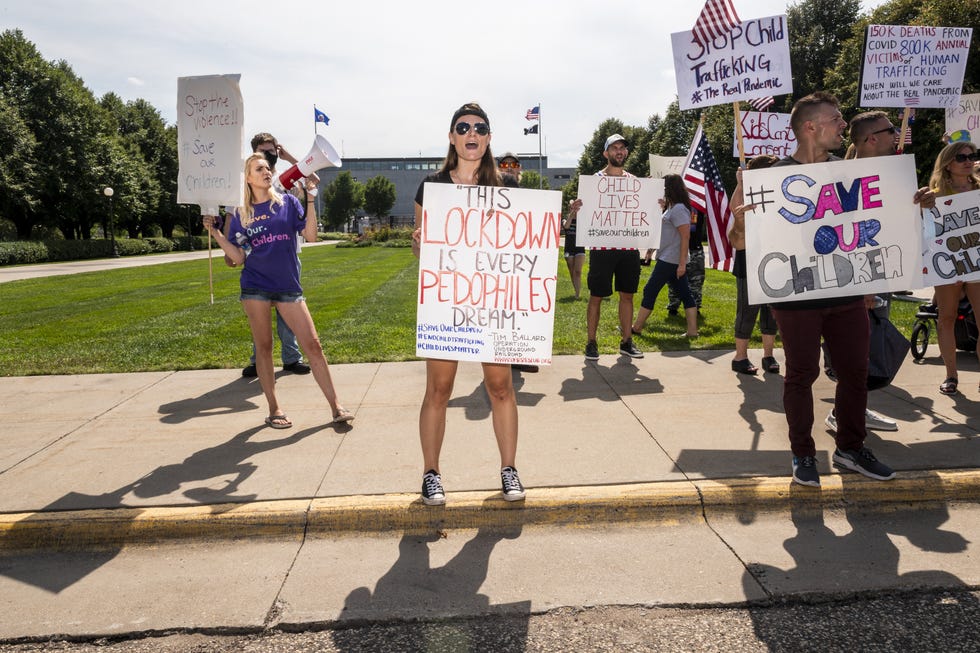
The barrage of misinformation linking the LGBTQ community to pedophilia came a month after a Supreme Court ruling barred workplace discrimination based on sexual orientation and gender identity.
After Biden beat Donald Trump in the presidential election in November, anti-LGBTQ misinformation spread about Biden’s policy positions.
Gender identity was front and center.
“I think the surge is part of a clear campaign that is pushing back against increases in the cultural acceptance of trans people – both themselves and prominent people who are parents of trans children,” said Ange-Marie Hancock Alfaro, chair of the political science and international relations department at the University of Southern California, in an email to USA TODAY.
In February, debate over the Equality Act, a Democratic proposal that would prohibit discrimination based on sexual orientation and gender identity, reached a fever pitch in the House of Representatives. Before the bill moved to the Senate, Republican lawmakers such as Rep. Marjorie Taylor Greene, R-Ga. – who has expressed support for QAnon – pushed back by promoting traditional notions of gender identity rejected by doctors, psychologists and other scientists. Her claims spread online.
More:Lawmaker faces backlash after attacking congresswoman with transgender daughter
In October, social media users and conservative super PACs misconstrued Biden’s comments condemning anti-transgender discrimination to mean he supported children transitioning. After Biden’s inauguration, the narrative morphed into Biden and Assistant Health Secretary Rachel Levine supporting sex reassignment surgery for children without parental consent.
During and after her confirmation process, Levine was the target of misinformation and transphobic rhetoric online.
More:Rachel Levine faces transphobia in historic US Senate confirmation hearing
Fact check:Biden said transgender children should be subject to ‘zero discrimination’
Social media posts showed altered images of Levine in a bathing suit and taking a family photo. Other social media posts falsely claimed that Levine said Mr. Potato Head and Dr. Seuss books were bad for kids and that Time magazine had named her Woman of the Year.

Levine told USA TODAY she doesn’t have personal social media accounts, in part because of some of the backlash and hateful comments. The former Pennsylvania health secretary follows what’s said about her in the mainstream media, but she doesn’t let the attacks get to her.
“I am able to compartmentalize that very well. I don’t worry too much about what people say,” Levine told USA TODAY in an interview. “And so I worry about the impact on the LGBTQ community, particularly LGBTQ and trans youth.”
Misinformation taps into age-old myths
The rise of conspiracy theories about pedophilia, as well as Biden’s departure from the Trump administration’s policies, has created a fertile environment for online misinformation about LGBTQ people. Experts who study LGBTQ history said many of the false narratives aren’t new.
“The idea of children being vulnerable or endangered has been at the center of opposition to LGBTQ activism for as long as there’s been LGBTQ activism,” said Timothy Stewart-Winter, an associate professor of history at Rutgers University.
Marc Robert Stein, a historian and professor at San Francisco State University, said pedophilia accusations “even predate the development of LGBT identities and communities in the late 19th century.”
“Some of the earliest sodomy prosecutions that we’ve found in history, even as far back as colonial America, focus on adult-child sexual acts,” he said. “So that cultural association was made in the context of those transgressions.”
Other myths about LGBTQ people – including claims that they have a propensity for mental illness, disloyalty and political radicalism – have waxed and waned over the years. In some cases, they inspired political backlash against LGBTQ Americans.
In the mid-20th century, gays and lesbians were purged from government positions during the Lavender Scare, an outgrowth of Sen. Joseph McCarthy’s anti-communist campaign. That purge rested on the conspiracy theory that LGBTQ Americans were more likely to be security risks and communist sympathizers.
In 1977, Christian singer Anita Bryant successfully campaigned to repeal a Dade County, Florida, ordinance that prohibited discrimination based on sexual orientation. Bryant reportedly founded an anti-gay group called “Save Our Children” – a predecessor to QAnon’s 2020 rebranding. One argument Bryant used during her campaign claimed that if gays and lesbians were granted equal status in society, they would molest and recruit children.
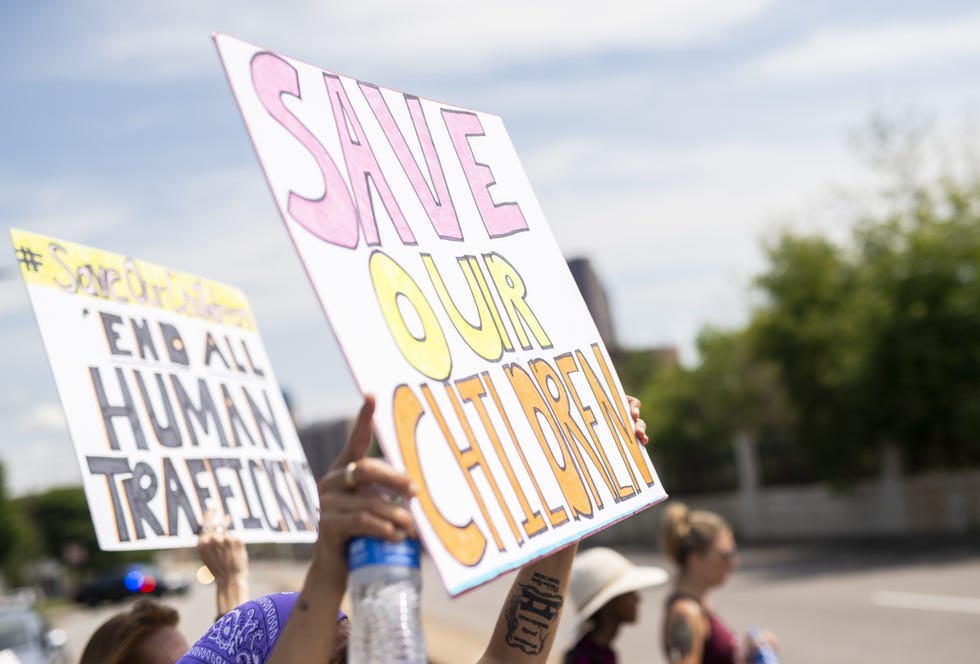
Bryant’s campaign, as well as the anti-LGBTQ policies it inspired in other states, came less than a decade after the Stonewall riots jump-started the modern LGBTQ rights movement. Political scientists and historians said that wasn’t coincidental.
“In LGBT history and politics, I think to some extent all of this arises in the context of perceptions of significant changes in gender and sexual cultures, and laws regulating gender and sexuality,” Stein said.
Falsehoods about transgender people have particularly strong staying power.
“People fear what they don’t know,” Stewart-Winter said. “A decade or 20 or 50 years ago, most people might not have known someone who is gay. And I think today, trans people are similarly kind of not necessarily known to a ton of people, and so they’re susceptible to false accounts.”
Advocates worry about effect on transgender youth
Misinformation and conspiracy theories about LGBTQ Americans don’t exist in a vacuum. Experts and advocates said they have the potential to cause real damage to the community, both on- and offline.
In May, GLAAD published its inaugural Social Media Safety Index, which took stock of the experiences of LGBTQ people on social media platforms. Despite company policies against harmful misinformation and hate speech, GLAAD found Facebook ads with false claims about HIV prevention drugs, YouTube videos amplifying the debunked theory that transgender identity is a mental illness and Instagram posts with anti-LGBTQ slurs.
The report’s conclusion: “The entire (social media) sector is effectively unsafe for LGBTQ users.”
“We see this as an enormous problem for our community,” Ellis said. “And right now, the target and the focus is our trans youth within our community, presumably the most marginalized within the community – and the ones with the least amount of voice, as youngsters.”
LGBTQ advocates said the transgender athlete bills are an outgrowth of misinformation. They point to the fact that experts have said there’s no scientific basis for the proposals and many lawmakers haven’t cited local examples of transgender athletes causing issues in school sports.
“They’re not responding to community advocates, they’re not responding to any kind of grassroots need,” Suen said of the bills. “They’re completely responding to national extreme groups like Heritage Foundation, Family Research Council and Alliance for Defending Freedom – and they’re responding to a loss of the Senate and of the presidency.”
Republicans and advocacy groups said the bills are rooted in a real issue: protecting the fairness of women’s sports.
‘Your actions speak louder than your words’: Transgender and nonbinary athletes call out NCAA
“Gender identity policies in sports are causing women and girls to lose hard-won equality, safety and opportunity in school athletics,” said Emilie Kao, director of the DeVos Center for Religion and Civil Society at conservative think tank the Heritage Foundation, in an email to USA TODAY. Kao referred to female transgender athletes as “males who identify as females.”
The Family Research Council, a fundamentalist Christian organization, has published similar views on its website over the past few months. USA TODAY was unable to reach the group for comment.
Erhardt said the ADF helped get her transgender athlete bill off the ground, but the idea was her own.
She was partly inspired by a Dear Colleague letter issued in 2016 by the Obama administration. The guidance, which the Trump administration rescinded in early 2017, interpreted Title IX of the Education Amendments Act to mean schools generally must permit students to participate in sex-segregated activities in accordance with their gender identity.
“As I looked at that and I looked at just how close we were teetering on the edge of just having everything turned upside down, it became apparent that we needed to protect our state and protect our girls and our women with legislation that would allow them to continue to compete with other girls and women,” Ehardt said.
Since Ehardt introduced her bill, called the Fairness in Women’s Sports Act, dozens of states have copied the law – some verbatim. The spate of legislation began in January after Biden’s executive order calling on federal agencies to bar discrimination based on gender identity, which mentioned school sports in passing.
Opinion:I was the fastest girl in Connecticut. But transgender athletes made it an unfair fight.
Opinion:I’m a lifelong competitive athlete and a mom: Transgender athletes aren’t a threat to women’s sports
“We are encouraged by legislators who have authored and introduced legislation which simply reinforces what Title IX was designed to do: provide equal opportunities and fair competition for women and girls,” Christiana Holcomb, legal counsel for the ADF, said in a statement emailed to USA TODAY.
Ehardt said seeing those proposals has been “very gratifying,” although she recognizes that “everyone bringing this legislation may not have the same motives.”
Political scientists told USA TODAY the flurry of bills is part of a tried-and-true strategy for conservatives, one that’s become more popular as the country recovers from the coronavirus pandemic.
“When the economy is recovering and the pandemic is fading … opposition leaders have to find another wedge issue to distinguish themselves,” Hancock Alfaro said. “And culture wars issues like sexuality and gender identity can be an effective way to mobilize their like-minded voters for the 2022 midterm elections.”
As LGBTQ rights take center stage, that culture war shows no signs of slowing down.
In mid-June, the Education Department built on Biden’s executive order by reinstating the Obama-era guidance on transgender students. This week, the Supreme Court declined to weigh in on the case of Gavin Grimm, a transgender man at the center of a years-long battle over school bathrooms. The decision permitted a lower court’s ruling, which found Grimm’s former high school could not prohibit students from using bathrooms that align with their gender identity, to stand.
Those developments, in addition to the high court’s ruling last year in Bostock v. Clayton County, were wins for the LGBTQ rights movement. Another case raises questions about the conflict between LGBTQ rights and religious freedom. This month, the Supreme Court ruled that a Catholic foster care agency in Philadelphia could turn away same-sex couples for religious reasons.
If history is any indication, debate and misinformation about LGBTQ Americans will persist.
“There’s only so much excitement you can get out of people about taxes and infrastructure and gerrymandering,” Michelson said. “But when you turn to these issues that are seen as good vs. evil – when it’s about protecting the unborn or it’s about protecting innocent children – that’s really where you get people fired up.”
Contact Fact Check Reporter Daniel Funke at dfunke@usatoday.com or follow him on Twitter at @dpfunke.

